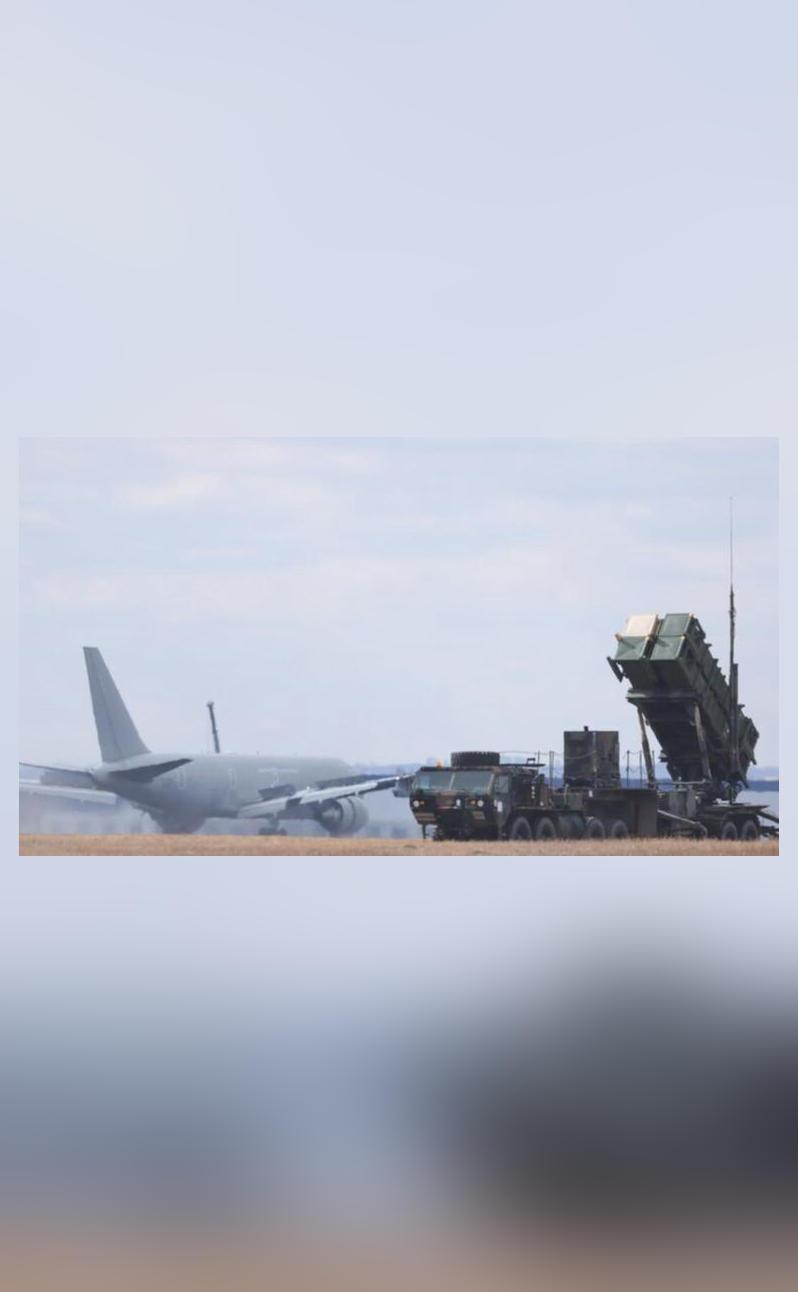
Ukraine, NATO treating our infra as if it’s their own: Poland
In a recent development that has sent shockwaves across the globe, Poland’s President Andrzej Duda has accused Ukraine and NATO of treating Polish infrastructure as if it were their own. The Polish leader has threatened to shut down the country’s main transit hub for Western military aid to Ukraine, citing a lack of inclusion in key international bodies responsible for decisions on aid delivered via Polish territory.
This development is a stark reminder of the complexities and tensions surrounding the ongoing conflict in Ukraine, as well as the delicate balance of power in the region. As the conflict continues to escalate, the stakes are higher than ever, and the situation is becoming increasingly precarious.
At the heart of the issue is the fact that Poland has not been included in key international bodies responsible for decisions on aid delivered via Polish territory. This lack of inclusion has led to concerns that Ukraine and NATO are treating Polish infrastructure as if it were their own, without consulting or involving Poland in the decision-making process.
President Duda has been vocal in his criticism of the situation, describing it as a “scandal” and calling for greater transparency and cooperation in the delivery of aid to Ukraine. He has also threatened to shut down the country’s main transit hub for Western military aid to Ukraine, which has significant implications for the ongoing conflict.
The Polish leader’s comments have been met with a mixture of surprise and outrage from some quarters, with many wondering why Poland has not been included in key international bodies responsible for decisions on aid delivered via Polish territory. However, others have welcomed the move, seeing it as a necessary step to ensure that Poland’s interests are protected in the face of the ongoing conflict.
So, what does this mean for the ongoing conflict in Ukraine, and what are the implications for the region as a whole? In this blog post, we will explore the complexities of the situation, examining the tensions and power dynamics at play, and considering the potential consequences for the region.
Background to the conflict
The conflict in Ukraine began in 2014, when pro-Russian separatists in eastern Ukraine declared independence from the government in Kiev. The separatists were supported by Russia, which has been accused of providing military aid and training to the rebels. The conflict has resulted in the deaths of thousands of people, and has led to widespread displacement and human suffering.
In recent months, the conflict has escalated, with fighting intensifying in the Donbass region. This has led to concerns that the conflict could spread to other parts of the region, potentially destabilizing the entire region.
The role of NATO
NATO has been involved in the conflict from the outset, providing military aid and training to the Ukrainian government. The alliance has also been involved in efforts to broker a peace settlement, working with Russia and other international partners to find a solution to the conflict.
However, the involvement of NATO has been met with criticism from some quarters, with some arguing that the alliance’s involvement is exacerbating the conflict rather than resolving it. Others have accused NATO of using the conflict as a pretext to expand its influence in the region.
The role of Poland
Poland has been a key player in the conflict, providing military aid and training to the Ukrainian government. The country has also been involved in efforts to broker a peace settlement, working with NATO and other international partners to find a solution to the conflict.
However, Poland’s involvement in the conflict has been met with criticism from some quarters, with some arguing that the country’s military aid is exacerbating the conflict rather than resolving it. Others have accused Poland of using the conflict as a pretext to expand its influence in the region.
The situation with Ukraine and NATO
The recent comments from President Duda have highlighted the tension between Poland and Ukraine, as well as the country’s relationship with NATO. The Polish leader has accused Ukraine and NATO of treating Polish infrastructure as if it were their own, without consulting or involving Poland in the decision-making process.
This lack of inclusion has led to concerns that Ukraine and NATO are using Polish infrastructure to deliver military aid to Ukraine, without regard for Poland’s interests or sovereignty. This has significant implications for the region, as it could potentially destabilize the entire region.
Conclusion
The situation with Ukraine, NATO, and Poland is complex and multifaceted, with many different factors at play. However, at its heart, it is a conflict about power and influence, with each side seeking to protect its interests and advance its goals.
For Poland, the situation represents a significant challenge, as the country seeks to balance its relationships with Ukraine and NATO while also protecting its sovereignty and interests. The Polish leader’s comments have highlighted the tension between Poland and Ukraine, as well as the country’s relationship with NATO, and have raised questions about the future of the region.
As the situation continues to unfold, it is clear that the stakes are higher than ever, and that the situation is becoming increasingly precarious. It is essential that all parties work together to find a solution to the conflict, and to ensure that the region remains stable and secure.
News source:
https://www.rt.com/russia/621293-poland-close-ukraine-aid-hub/amp/



